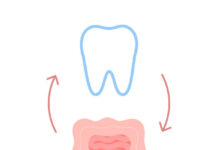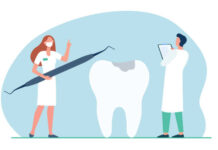Most people battling dental problems only visit a dentist when the pain becomes unbearable. On the other hand, regular dental visits have twin purposes: oral hygiene and overall health. That is why teeth problems may quickly transform into severe complications, which can influence the functioning of the cardiovascular and digestive systems and even digestive systems. This will notify you when to seek dental attention so you will not be taken by surprise, and it will ensure you maintain your healthy smile.
The following describes some significant signals when you must visit your dentist.
- Chronic Toothache
In dental disorders, pain is usually a constant throbbing pain in the affected tooth. The pain can range from slight to severe and becomes severe when you consume hot or cold foods and drinks. This toothache often indicates that your tooth has decay, is cavity-filled, or has malignant forms such as an abscess. If chronic pain continues, it may worsen due to the infection, and it can even result in tooth loss. That is why visiting Dentista Guadalajara is advisable if you experience tooth pain.
- Bleeding Gums
Although the gums sometimes bleed if one is lucky enough to brush or floss with some added power, bleeding gums, if done regularly, could be a sign of gingivitis or periodontal disease. Healthy gums do not bleed; when one notices blood while brushing or flossing, one should not hesitate to see the dentist. It, if not treated, can cause a person to lose their teeth and has even been associated with heart disease.
- Bad Breath
Bad chronic breath is medically termed halitosis and can be a result of infection/decay or improper dental hygiene. Poor dental hygiene allows the mouth’s bacteria to grow and give off a foul smell, which cannot be masked using mouthwash or mints. Dentista can identify the cause of halitosis and suggest correct treatment or modifications in lifestyle that will help to eliminate the problem.
- Sensitivity to Hot and Cold
Tooth sensitivity could be due to worn-out enamel or receding gums exposing the dentin from beneath. If one feels wincing while taking a hot or cold drink, such sensitivity might point to tooth decay, worn fillings, or gum diseases. A dentist can provide a cure for the ailment in the form of fluoride treatments or special toothpaste.
- Dry Mouth
A constant mouth dryness, or xerostomia, can be much more than a minor annoyance. Saliva neutralizes acids produced by bacteria, thus protecting teeth from decay. Dry mouth may result from medication, aging, or systemic conditions, and your dentist can suggest ways to restore saliva production and protect oral health.
- Pain or Clicking in the Jaw
Pain in the jaw or a click when opening and closing the mouth may be symptoms of TMJ disorders or other dental problems such as bruxism. These could further present worn teeth over time, creating more problems if left untreated. A dentist can assist in such interventions as mouthguards, among other treatments.
- Mouth Sores
Often, canker sores or mouth lesions are not severe and heal independently. Still, ulcers that have not healed within a week should be seen by a dentist to rule out infection or, more rarely, oral cavity cancer.
Final Words
It is essential to take warnings that may signal the need for dental care since oral health is an integral part of general health that saves you from unnecessary discomfort and long-term complications. Dental check-ups help find problems when they are easier to treat, enabling you to avoid further complications. Being more observant and acting upon these symptoms will keep your smile healthy and reduce the possibility of getting other health problems due to oral diseases.


























